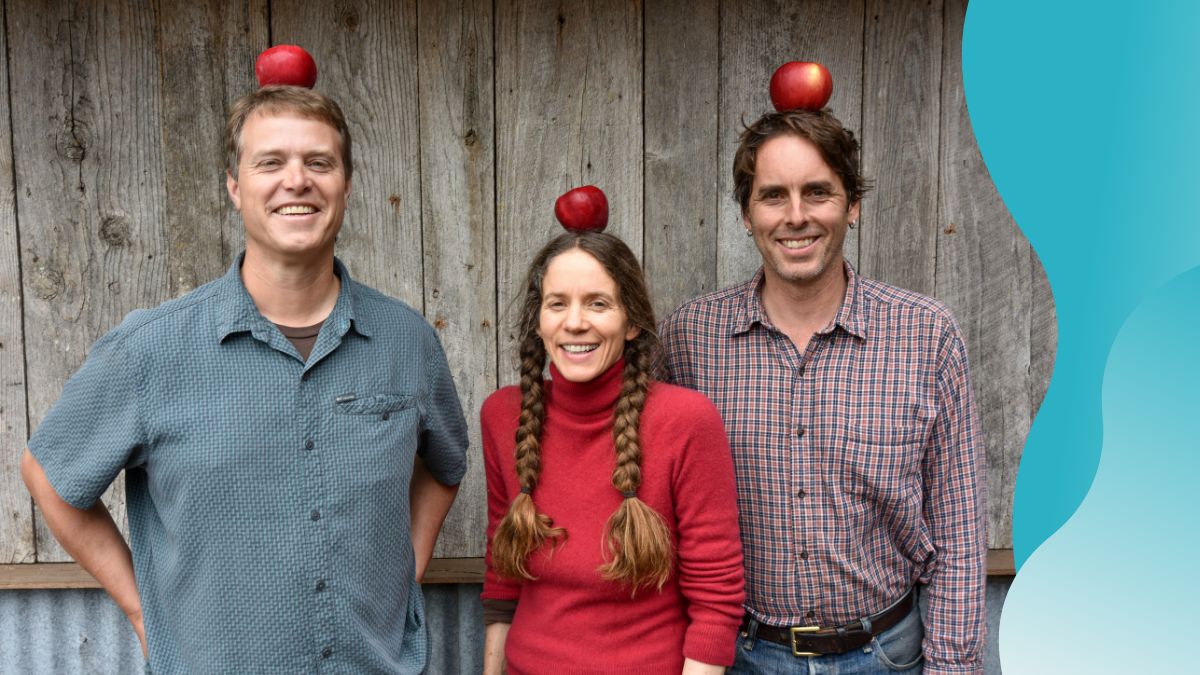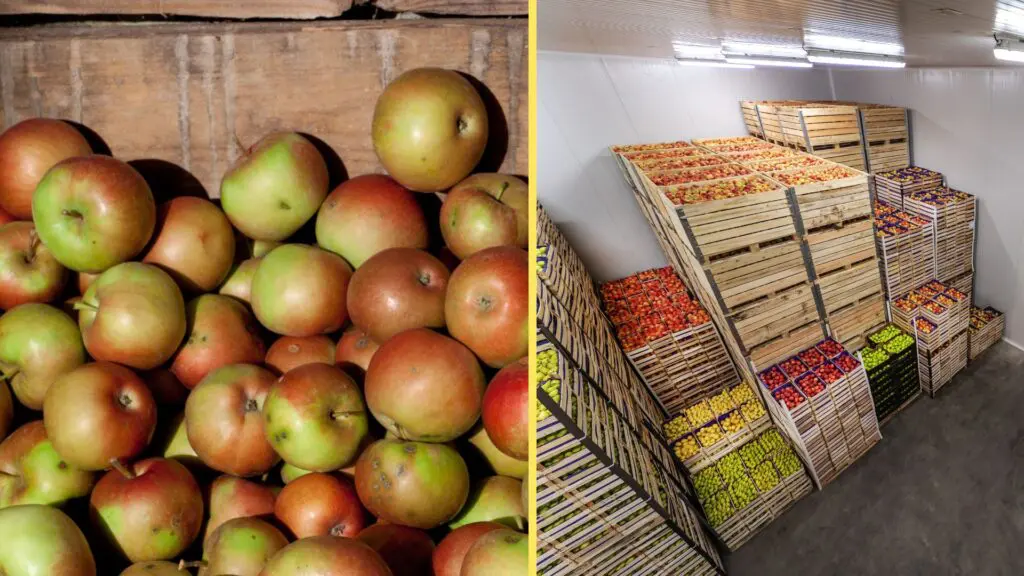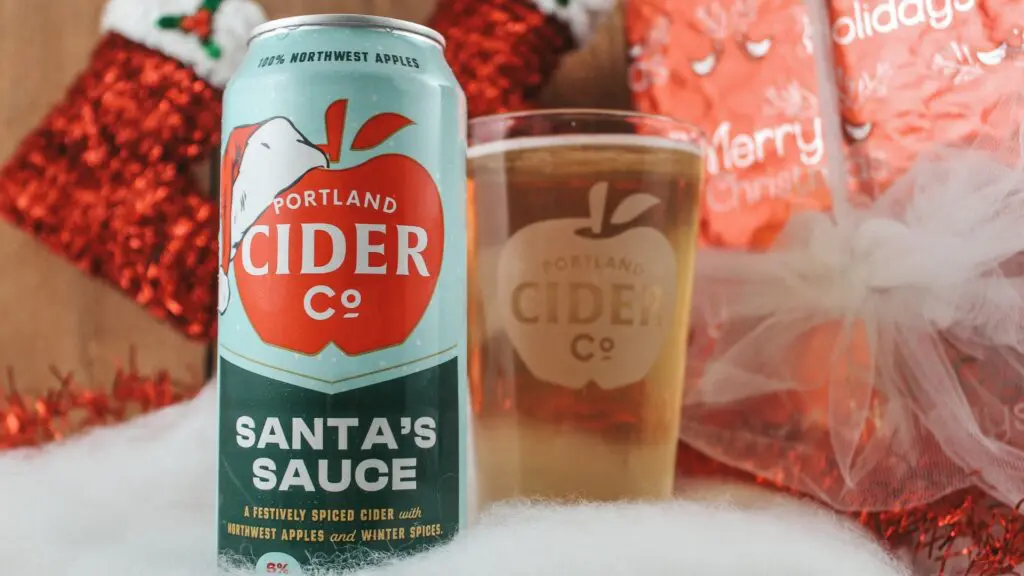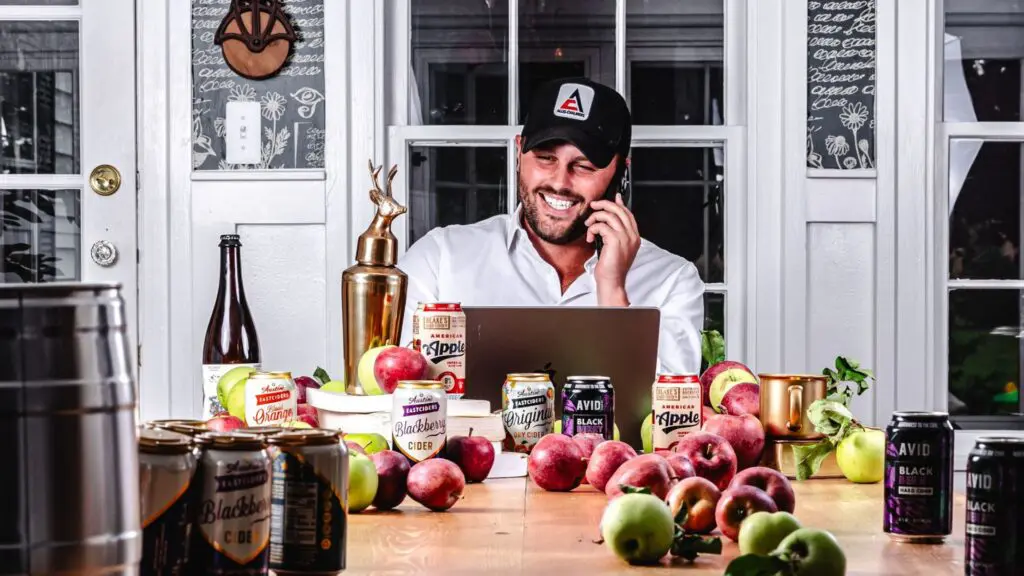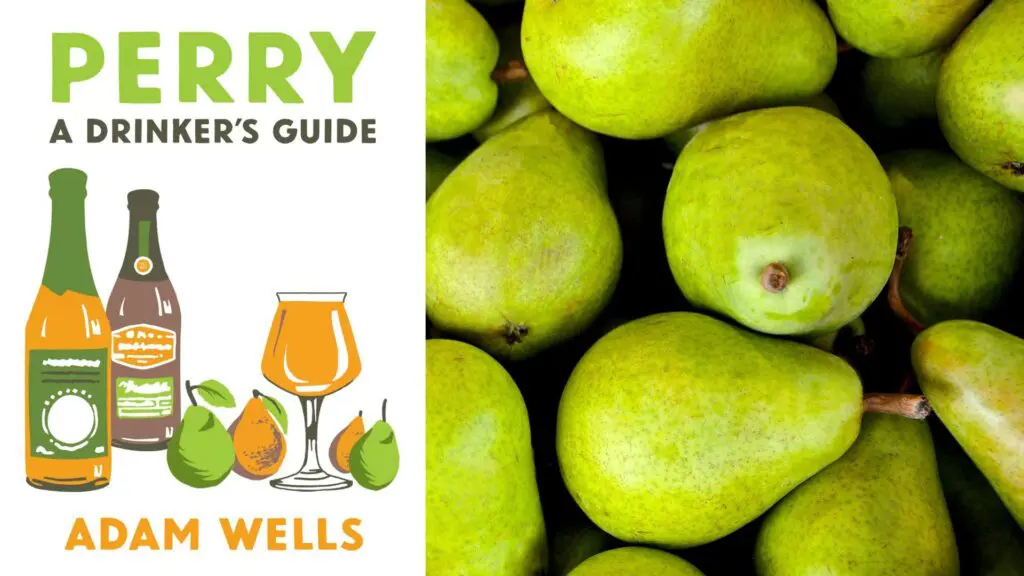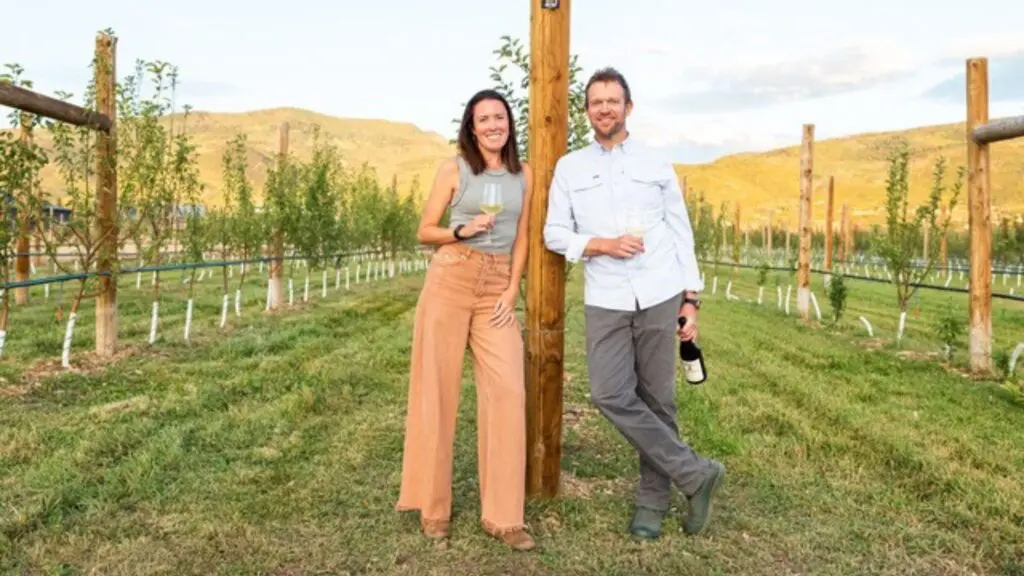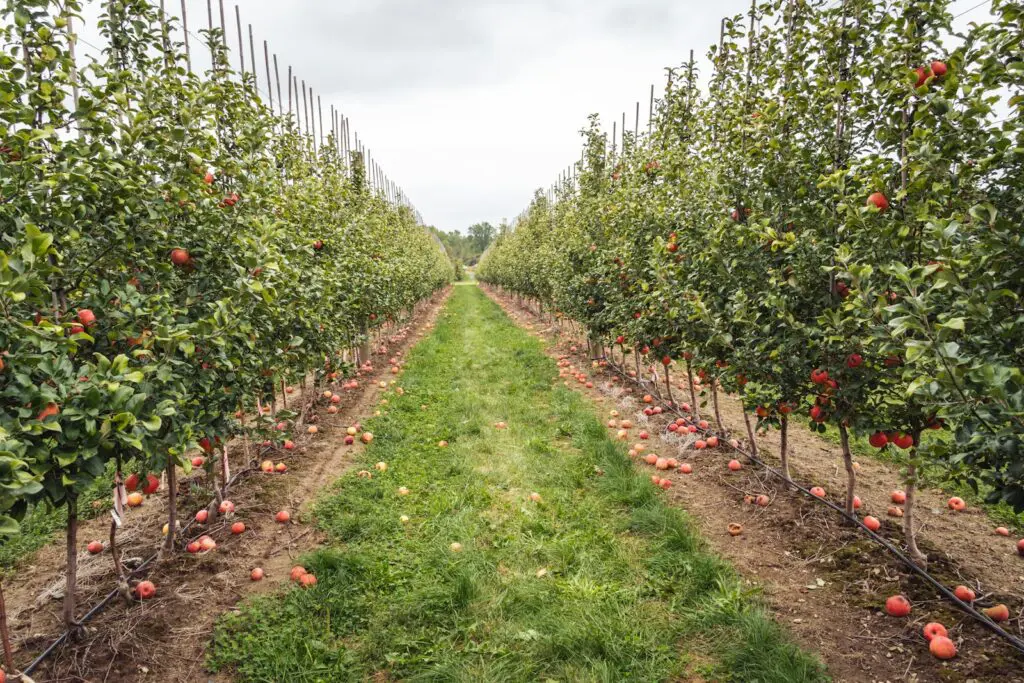The first time Cyrstie Kisler and Eric Jorgenson, co-owners of Finnriver Farm & Cidery in Chimacum, Washington, learned about the B Corporation certification, it was from a customer who also happened to be a social purpose initiative business consultant. That conversation inspired them to look into the program, quickly realizing several larger companies they respected, such as Patagonia and Ben & Jerry’s, were certified. From that point, they decided to make Finnriver the first B Corp–certified cidery in 2015. Six years later, Finnriver has just completed their third renewal process for the two-year certification.
“We’ve committed!” Jorgenson exclaims. “A significant portion of our ‘credit’ towards our approval score is our emphasis on organic ingredients in our products.” The company also focuses on energy efficiency and recycling efforts, offers employees benefits, and employs a sustainability manager to help ensure the company continues to meet their environmental impact goals.
“[We want to be] a force for good in our community and to take care of our people and environment,” says Michelle Faris, co-owner of Ernest Cider in Bond Head in Ontario, Canada. Earning B Corp status was one of Faris’ top priorities when starting Ernest, one she considers a building block for the brand itself. Like Jorgenson, who says he values the certification as a North Star for guiding improvements, tracking success and staying accountable, Faris says the certification process itself is a great way to crystalize values and figure out where your business has room for improvement.
Gaining B Corp status gives businesses a way to communicate value, offers Jacques Roberto, CEO of Ramborn Cider Co. This is particularly important for the Born, Luxembourg-based cidery, which benefits from widening its market internationally. Not only does the certification help gain the trust and understanding of shareholders, buyers and consumers, Roberto says it also helps attract quality employees who share Ramborn’s ethos. “B Corp was the only certification we could find that’s for a whole business, rather than just a product or service,” he says. “It’s a holistic certification, and that’s very meaningful to us.”

The latest B Corp-certified cidermaker is Berkshire Cider Project in North Adams, Massachusetts. Co-owner and general manager Katherine Hand says Berkshire Cider values the accountability, transparency and differentiation conferred by the certification. “It helps to distinguish us,” she says. “We are the second B Corp in Berkshire County, and one of just 78 B Corps in Massachusetts. Across the beverage and hospitality space, certification is also pretty uncommon.” While she sees value in standing out, Hand also welcomes B Corp certification becoming more ubiquitous. Hand believes if more businesses prioritize sustainability and community impact, the result will be a net gain. She warns, however, that getting certified won’t work for green washers looking for an easy marketing ploy. “It is a rigorous process and an ongoing commitment.”
Hand’s background working with Fortune 100 companies on corporate sustainability strategies and reporting was an asset when Berkshire Cider decided to go for B Corp status. She advises that starting a business with the intention of becoming B Corp certified is much easier than trying to “retrofit sustainability and social impact values into an established business.”
The B Corp application process includes documenting the businesses’ processes and impact results and participating in verification meetings. Everything applicants claim about their company must be backed up with proof and data. “It’s a months-long process,” Jorgenson explains, but one that offers its own benefits. “We always learn so much about ourselves during the certification process itself!”
Hand agrees that the impact report offers an opportunity to pinpoint where a business can have the most positive impact. “Companies like Heineken can invest hundreds of thousands of dollars to develop new kinds of plastic-free packaging. [At Berkshire Cider] we have to make choices based on what is available from our suppliers,” she says. “Coca-Cola can invest in building recycling infrastructure where it doesn’t exist. We have to consider local recycling and trash collection infrastructure as it exists.”
Instead of trying to achieve out-of-reach goals, Hand recommends looking for more accessible areas with high returns on investment. For Berkshire Cider, that means focusing on actions like local sourcing and hiring as well as committing a minimum of 2% of the business’s annual revenue to nonprofit organizations.

“The biggest learning was the discovery of our ‘impact business models’ — the ways that our business is designed to create specific positive outcomes for our stakeholders,” says Roberto. “At Ramborn, our impact business models include an environmentally friendly manufacturing process, local economic development and land and wildlife conservation.”
What’s more, policy ideas can come from the application process. For example, Jorgenson says Finnriver now compensates employees for their volunteer hours and has made improvements to the company’s waste reduction initiatives including bottle-washing and re-use, all based on learnings gleaned from the application process.
“A successful business is not just about the dollars and cents,” Hand says, “but also the positive impact we can have on our community. It means doing all we can — in large and small ways — to address climate change, support local farmers and create more jobs. Becoming a certified B Corp offers valuable third-party recognition that our business model is one that balances purpose and profit, putting our values to work in the products that we create.”
When customers see the B Corp certification, which is showcased as a circled and underlined B on packaging, “they know that business is committed to more than just being profitable, but to being cognizant of their impacts on the landscape, ecosystems, local community and global family,” Kisler says. “That they are making a deliberate and trackable effort to reduce harm and be a positive force in the world.”
Likewise, once a business goes through the B Corp certification process, Roberto explains, they’re even more likely to notice and seek out partner businesses based on those businesses’ own trackable impacts, creating a positive ripple effect. When determining partners, supplies, and making other decisions at Ramborn, Roberto says he now always considers three Ps: “Planet, people, and profit.”
B Corp-Certified Ciders to Try:
Finnriver Farm & Cidery’s Field of Hay is part of a Pollinator Series celebrating local agriculture in the Chimacum Valley. Expect earthy, herbal notes alongside orchard fruit and citrus pith, balanced by minerality and a long finish.
Ernest Cider’s Apple Strudel features Ontario apples lightly sweetened with local honey and spiced with cinnamon. Drinking it is reminiscent of biting into the delicate European pastry.
Ramborn Cider Co.’s Luxembourgish Garden Quince showcases 100% quince fruit from the full-size trees grown in Ramborn’s meadow-style orchard. This cider offers balanced acidity and full tannins with notes of citrus and honey.
Berkshire Cider Project’s Community Cider Project #2 is made with apples donated from local yards and foraged from public trees. Fermented with wild yeast in oak, the cider captures a true taste of Western Massachusetts.

